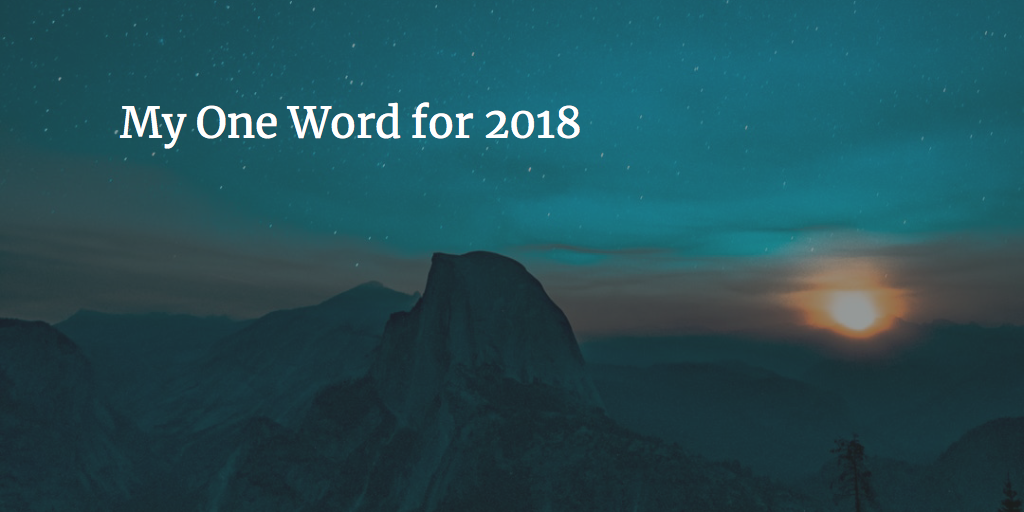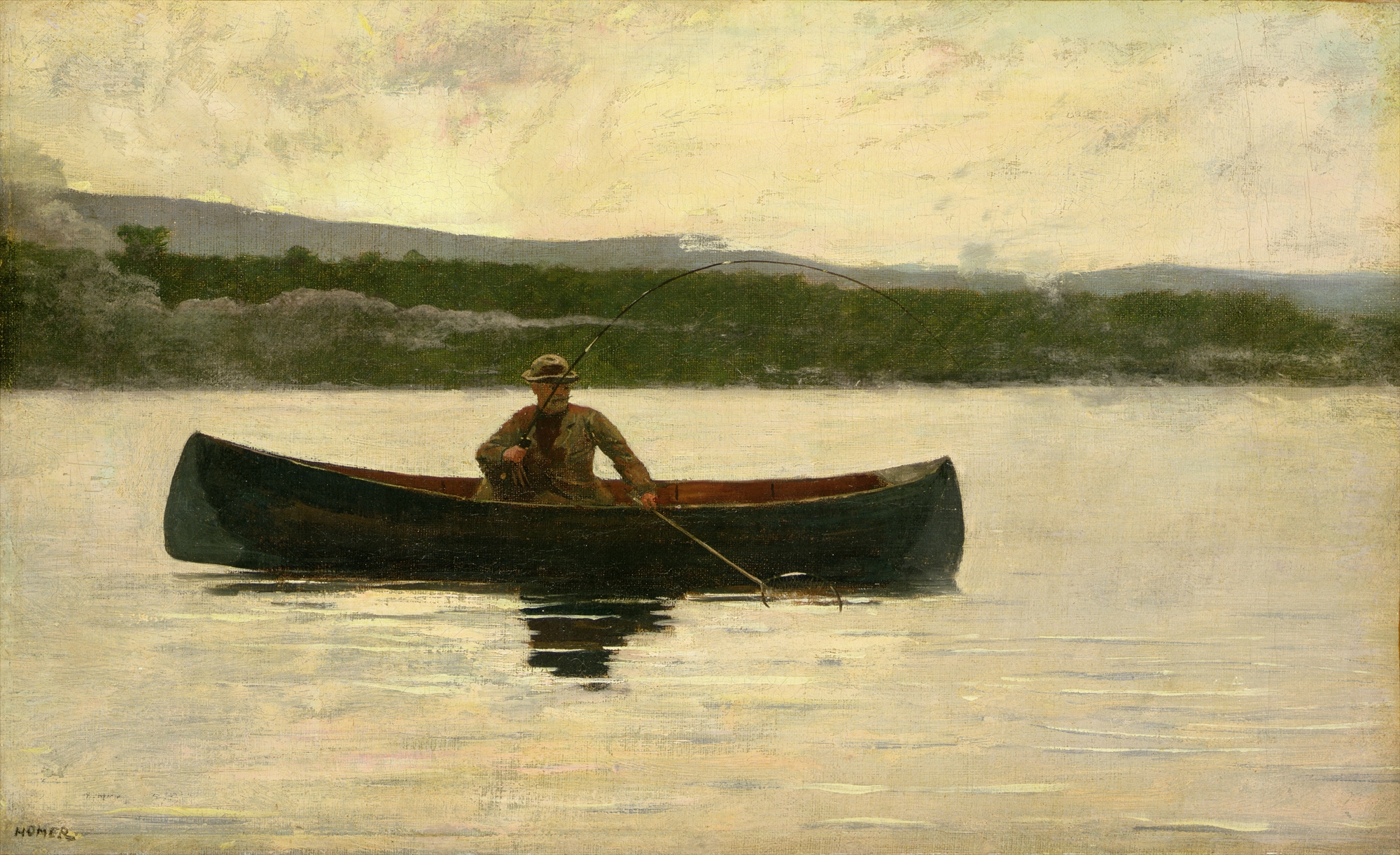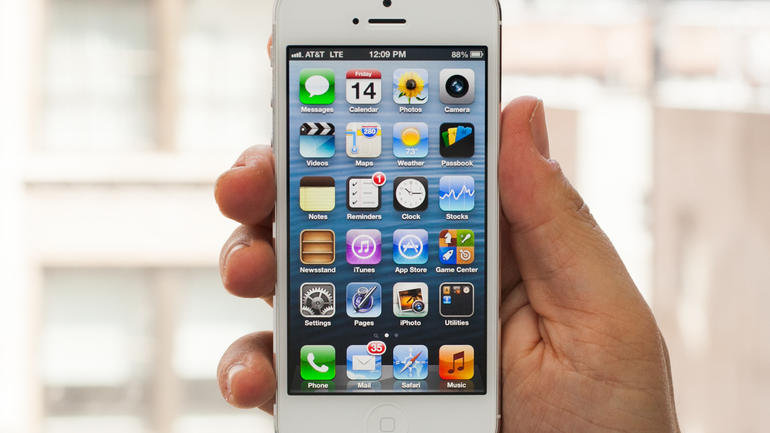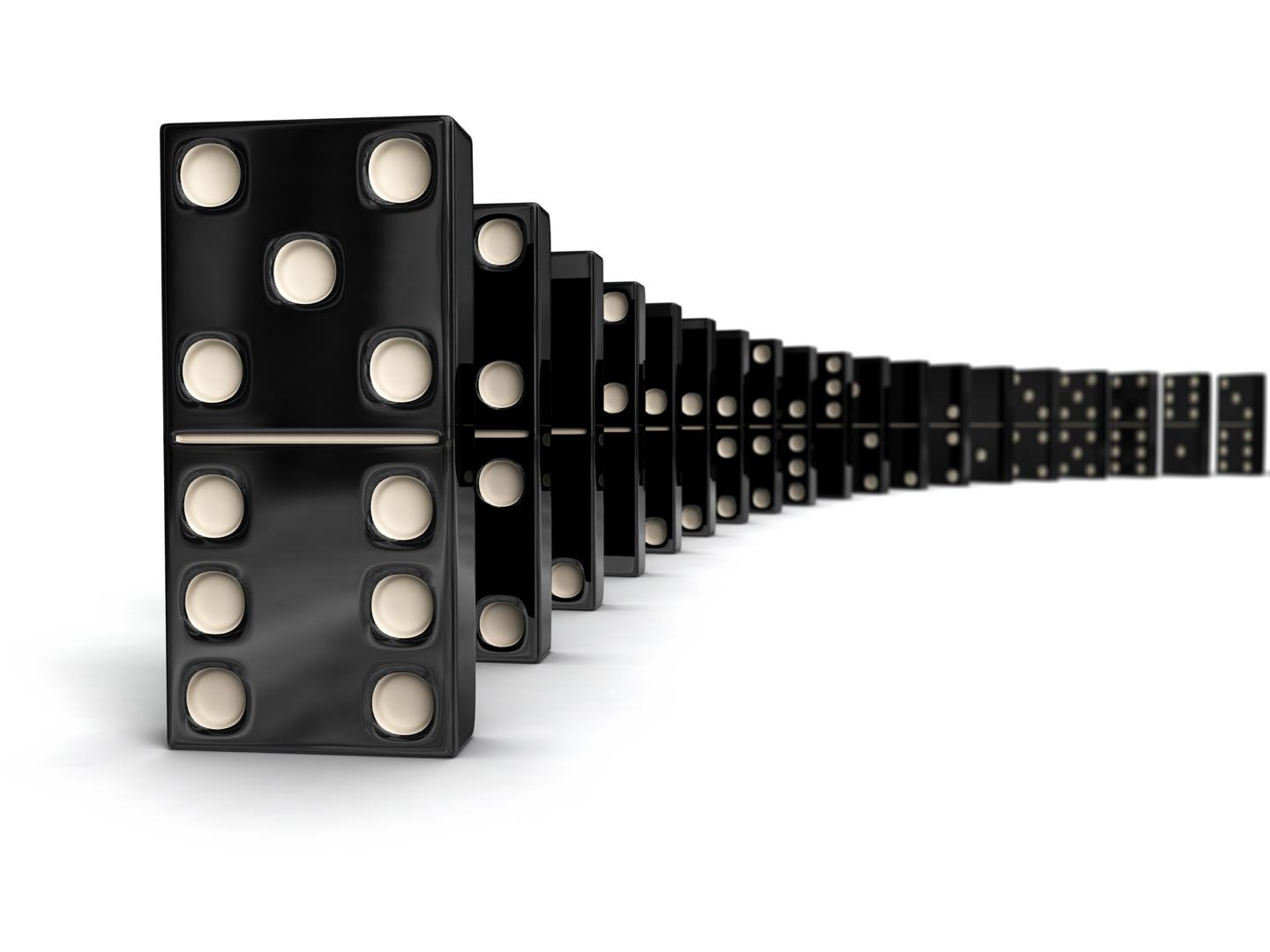My One Word for 2025
Longtime (or should it be long-suffering?) readers will be familiar with this exercise: for a over a decade now I have had fun with the idea of adopting one word as a theme for the upcoming year.
For 2014, 2015, 2016, and 2017, I stuck with the same word: early. My emphasis was not on punctuality but was rather about mornings and deadlines.
In 2018 I slightly pivoted and went explicitly with morning. I kept the same word in 2019; that 2019 post is probably my favorite thing I’ve ever written, because in it I was able to talk about how I see the world and why.
In 2020 (poignant now to think about writing that post just a few months before the pandemic) I departed from one word and went with a theme for the decade: “Here’s To the Roaring Twenties.”
In 2021, I went back to one word and picked the word “work.”
That 2021 post was the last one I did in this series—I didn’t pick a word for 2022, 2023, or 2024. In fact, I haven’t written very much in this space these last several years, as I’ve just been too busy with other things. That is going to change in 2025.
One Word and My Job
Each job is difficult in its own way—all professions have their own challenges. I’m a pastor, and the hardest thing about being in pastoral ministry—by far!—is preaching every week. Just imagine having to stand up in front of a group of people every single week and being tasked with saying something
true;
helpful;
and crucially…
interesting.
And then having to do the same thing again in just seven days! In only a few months you’ll have burned through every insight, anecdote, and illustration you have, but the calendar never stops—there is always another Sunday. New content doesn’t just appear because you pray for it—it takes work. Then, on top of that, you are preaching God’s Good News, and so your countenance and heart need to reflect that—you’ve got to preach with JOY, which means you have to work hard to guard your heart and your energy so that you can actually be joyful every Sunday. None of that is easy.
But I’ve stupidly made things more difficult for me at Asbury with these scripture reading guides we publish. We say that Asbury is a Bible-reading church, and since I arrived two and a half years ago, I’ve written these guides to help folks get the most out of their daily readings. The problem is that I don’t know anything! I’ve got to read and study a great deal before I’m able to write anything. So, in addition to each Sunday’s sermon, I have these constant deadlines every couple of months or so to turn in a scripture reading guide to our printer so we can print our guides in advance. It’s like I have two different deadlines always over my head—my weekly sermon, and then these monthly reading guides. That has been stressful! I always feel like I’m behind.
Of course, I have regular tasks to tend to as well—emails and meetings and agendas and strategies, etc. (All email written to me—except from staff members—goes to my assistant. I can’t imagine having to also answer all the email she receives on my behalf!) My temptation is to get to these things first and put off the reading and writing I need to do. I like my work and these days none of it is a waste of time or unimportant—the problem for me is that the most important thing I should be doing every day—reading and learning—is easy to push off and allow other things to crowd it out.
So, my one word for 2025 is about getting to the important task of reading right away, every day. Email, text messages, agendas—that all needs to wait.
My One Word and Marie Kondo
I’m the kind of person who likes clean edges and clear spaces before I can do any kind of deep work. Clutter and mess stress me out. The problem is that I have developed some bad habits that contribute to my own mess! Namely, I will often just put something down rather than putting it away. (Anyone else have that stupid habit?) What this means is that I make double the work for myself in cleaning up clutter, which means I have less time for the really important work that I need to be doing.
One of the things I’m going to do better in 2025 is putting things away rather than just putting them down, and my 2025 One Word will help keep me focused on that goal.
My One Word and The Snoze Button
I’ve written previously just how important early mornings are for me. I begin the day with prayer and then—in theory at least—I hit my morning workout. In 2024 I’ve been extremely inconsistent with my morning workouts, basically for one reason—I hit snooze when my alarm goes off! (My wife is not a fan of this behavior of mine, by the way.) So, what has been happening is that I still get up early, but because I haven’t gotten up quite early enough, I don’t have time to both pray and hit my workout. So, I skip the workout.
My One Word for 2025 is about getting up right away and getting right to those crucial behaviors—morning prayer and morning exercise. Goodbye to the snooze button for 2025. It’s been fun while it lasted, and I’m gonna kinda miss ya.
My One Word and The American Buffalo
One of my favorite animals is the buffalo, and one of my favorite characteristics of the buffalo is that, when a buffalo herd sees a snowstorm on the horizon, it charges into the storm. Why? Because then the storm will pass over more quickly.
I love that, and I want to be that kind of man—if there is a problem to be dealt with, might as well deal with it right away. For me, this is a “growth opportunity” as they say in Corporate America—or, to be more candid, I’m not naturally very buffalo-like, but I want to be!
My One Word for 2025 is about facing problems head on—going right toward the hard thing.
My One Word and My New Book!
I mentioned above that I’ve had two deadlines hanging over my head constantly since I’ve been at Asbury, but that’s actually not the full story—it would be more accurate to say that I’ve had a third deadline hanging over my entire life these past several years.
In 2020 I signed a contract with the book publisher Zondervan to write a book with the working title Love Goes First, and, incredibly, that book will be published this year—the tentative release date is September 16, 2025. For years I’ve had that major project hanging over my head, and it’s hard to believe that I’m very close to actually having a book published.
The idea behind the book is a simple answer to an important question. There is lots of talk these days about polarization, but very little talk about what we actually DO to reach the people that don't like us, the people that might even hate us. My new book is about what to DO. If we want to change the world, we have to go first, because love goes first.
I filmed a 90 second video trailer for the new book:
I open the book with this quotation, one that I think about all the time:
“Every one of us came into the world looking for one thing: the moment we were born we were looking for a face. We were born and in the shock and surprise of birth we opened our eyes and we looked for a face, because until we see a face—until another sees us—we do not know who we are, and we looked for someone who would look at us….Every human being…is looking for someone who is looking for us.” —Andy Crouch
If this is true about people—and I believe it is—then what if we moved toward other people so that they felt like we were actually seeing them?
That’s the idea of the book.
Love always GOES.
And that’s the only way to actually change people—to go first.
My One Word for 2025 is also the theme of my new book. I really believe in its message and I believe that going first is the only way forward for the church in a post-Christian culture—we’ve got to move toward the very people that hate us.
My One Word and The Year Ahead
I’ve got a lot to do this year, but I’m looking forward to it. I’ve never written a book but after going to all this trouble, I really want people to read it because I believe in the message. So, although the good folks at Zondervan have their own marketing plan, as the author I am also responsible for doing everything I can do get the word out about my new book. One of the things I’m going to be doing is blogging more in this space, both about the book and the need for its message and about other things that catch my attention. Who knows, maybe a podcast might be in my future, too. There’s a first time for everything.
My One Word for 2025 describes what I anticipate to be a year of new things for me.
My One Word for 2025 is…
Over the last few days I’ve done a year-end review and had a fair amount of time for reflection, looking back and thanking God for all his blessings on the year past and then looking ahead and asking the Lord to guide me and bless my work in the year ahead. I cast around for the right word to give me focus for this new year, but nothing seemed to stick.
And then this morning, it just hit me, and I knew what my One Word for 2025 had to be.
My One Word for 2025 is
first.
















!["San Giorgio Maggiore at Dawn" [1819] by J.M.W. Turner [Wikimedia Commons]](http://static1.squarespace.com/static/5d70f59aefca59000162e4e6/5d7fcef39f682762992c8aca/5d7fcefe9f682762992c8c1f/1568657150927/Joseph_Mallord_William_Turner_-_San_Giorgio_Maggiore_at_Dawn_-_WGA23170.jpg?format=original)




![[wikipedia.com]](http://static1.squarespace.com/static/5d70f59aefca59000162e4e6/5d7fcef39f682762992c8aca/5d7fcefd9f682762992c8c01/1568657149862/Dawn_Xepon_Laos.jpg?format=original)
![[http://larrycuban.wordpress.com]](http://static1.squarespace.com/static/5d70f59aefca59000162e4e6/5d7fcef39f682762992c8aca/5d7fcefe9f682762992c8c05/1568657150073/andertoons-check-email.jpg?format=original)